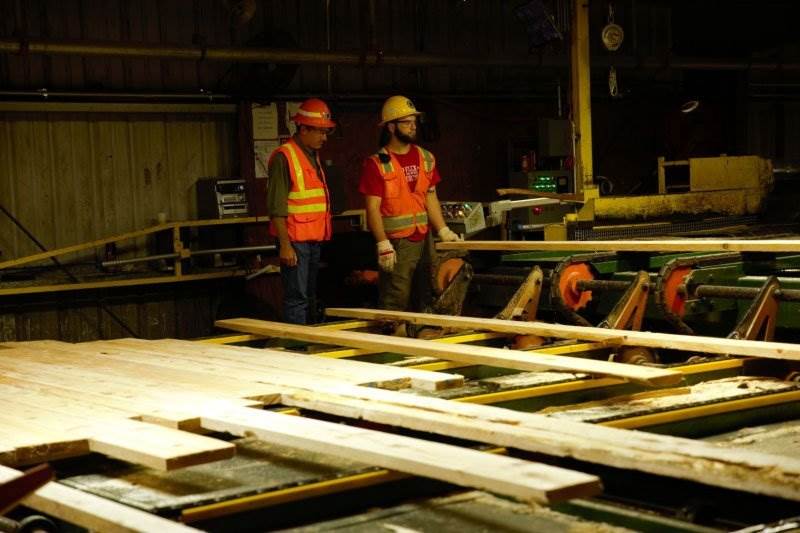The United States is set to more than double its duties on Canadian softwood lumber, bringing the new rate to 34.45%. This decision is expected to further increase material costs in the U.S. before President Donald Trump enacts additional tariffs on the sector.
Current Duties and Expected Increase
The combined countervailing and anti-dumping duty on Canadian lumber stands at 14.4%, a rate set last year. However, according to a Department of Commerce memo, the duty will rise by 20 percentage points. As a result, this increase will escalate the financial burden on the U.S. housing sector. Ultimately, the new rate will significantly impact housing costs.
Trump’s Threat of Additional Tariffs
President Trump threatened additional import taxes on lumber but hasn’t taken further action. He initiated a national security review of U.S. wood imports. Trump asserted that the U.S. doesn’t need Canadian lumber. However, U.S. homebuilders worry that further tariffs will increase new housing costs.
Trade Dispute Background
The duties stem from a long-standing trade dispute between Canada and the U.S. The U.S. accuses Canadian sawmills of benefiting from subsidies due to the provincial ownership of forests, claiming that low stumpage fees allow Canadian products to undermine U.S. market prices. Canada, however, has rejected these allegations.

China Retaliates Against Trump Tariffs
China retaliates against Trump tariffs escalating what is now considered the most significant trade war in a century…
Canada’s Stumpage System Defended
Kurt Niquidet, president of the British Columbia Lumber Trade Council, defended Canada’s stumpage system. He emphasized timber’s sale through competitive, open auctions. Niquidet argued that the system operates on market principles. He countered claims that Canada unfairly subsidizes its lumber industry.
Impact on Canadian Provinces
Lumber is a critical industry in Canadian provinces like British Columbia and Quebec. British Columbia Premier David Eby expressed concern, stating he would discuss the increased duties with Prime Minister Mark Carney. Eby described the higher tariffs as an “attack on forest workers and British Columbians” and warned they would drive up housing costs for U.S. citizens.
U.S. Lumber Coalition’s Position
Andrew Miller, chairman of the U.S. Lumber Coalition, argued Canada’s trade practices harm the U.S. industry. He claimed Canada’s tactics artificially inflate its market share, leading U.S. companies to reduce production. This results in significant job losses within the sector. Miller emphasized the negative impact on the U.S. lumber industry.
Challenges in Quebec’s Lumber Industry
Canada’s lumber industry faces major challenges, including rising costs, wildfires, and a pine beetle infestation. In Quebec, industry leaders like Frederic Verreault of Les Chantiers de Chibougamau Ltee. express growing concern. The situation has become untenable due to the added burden of U.S. trade barriers. Industry leaders fear the worsening crisis will severely impact production.


